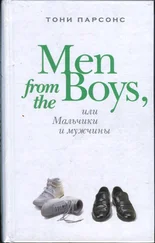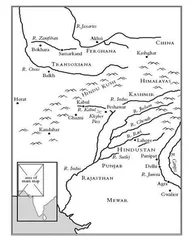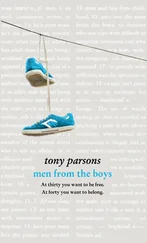Arnold Bennett - A Man from the North
Здесь есть возможность читать онлайн «Arnold Bennett - A Man from the North» — ознакомительный отрывок электронной книги совершенно бесплатно, а после прочтения отрывка купить полную версию. В некоторых случаях можно слушать аудио, скачать через торрент в формате fb2 и присутствует краткое содержание. Жанр: foreign_antique, foreign_prose, foreign_language, на английском языке. Описание произведения, (предисловие) а так же отзывы посетителей доступны на портале библиотеки ЛибКат.
- Название:A Man from the North
- Автор:
- Жанр:
- Год:неизвестен
- ISBN:нет данных
- Рейтинг книги:3 / 5. Голосов: 1
-
Избранное:Добавить в избранное
- Отзывы:
-
Ваша оценка:
- 60
- 1
- 2
- 3
- 4
- 5
A Man from the North: краткое содержание, описание и аннотация
Предлагаем к чтению аннотацию, описание, краткое содержание или предисловие (зависит от того, что написал сам автор книги «A Man from the North»). Если вы не нашли необходимую информацию о книге — напишите в комментариях, мы постараемся отыскать её.
A Man from the North — читать онлайн ознакомительный отрывок
Ниже представлен текст книги, разбитый по страницам. Система сохранения места последней прочитанной страницы, позволяет с удобством читать онлайн бесплатно книгу «A Man from the North», без необходимости каждый раз заново искать на чём Вы остановились. Поставьте закладку, и сможете в любой момент перейти на страницу, на которой закончили чтение.
Интервал:
Закладка:
Arnold Bennett
A Man from the North
CHAPTER I
There grows in the North Country a certain kind of youth of whom it may be said that he is born to be a Londoner. The metropolis, and everything that appertains to it, that comes down from it, that goes up into it, has for him an imperious fascination. Long before schooldays are over he learns to take a doleful pleasure in watching the exit of the London train from the railway station. He stands by the hot engine and envies the very stoker. Gazing curiously into the carriages, he wonders that men and women who in a few hours will be treading streets called Piccadilly and the Strand can contemplate the immediate future with so much apparent calmness; some of them even have the audacity to look bored. He finds it difficult to keep from throwing himself in the guard's van as it glides past him; and not until the last coach is a speck upon the distance does he turn away and, nodding absently to the ticket-clerk, who knows him well, go home to nurse a vague ambition and dream of Town.
London is the place where newspapers are issued, books written, and plays performed. And this youth, who now sits in an office, reads all the newspapers. He knows exactly when a new work by a famous author should appear, and awaits the reviews with impatience. He can tell you off-hand the names of the pieces in the bills of the twenty principal West-end theatres, what their quality is, and how long they may be expected to run; and on the production of a new play, the articles of the dramatic critics provide him with sensations almost as vivid as those of the most zealous first-nighter at the performance itself.
Sooner or later, perhaps by painful roads, he reaches the goal of his desire. London accepts him – on probation; and as his strength is, so she demeans herself. Let him be bold and resolute, and she will make an obeisance, but her heel is all too ready to crush the coward and hesitant; and her victims, once underfoot, do not often rise again.
CHAPTER II
The antique four-wheeler, top-heavy with luggage, swung unsteadily round by Tattersall's and into Raphael Street. Richard thrust down the window with a sharp bang, indicative of a strange new sense of power; but before the cab came to a standstill he had collected himself, and managed to alight with considerable decorum. When the door opened in answer to his second ring, a faint, sour odour escaped from the house, and he remembered the friendly feminine warnings which he had received at Bursley on the subject of London lodgings. The aspect of the landlady, however, reassured him; she was a diminutive old woman in ridiculously short skirts, with a yellow, crinkled face, grey eyes, and a warm, benevolent smile that conquered. As she greeted Richard she blushed like a girl, and made a little old-fashioned curtsey. Richard offered his hand, and, after wiping hers on a clean apron, she took it timidly.
"I hope we shall get on well together, sir," she said, looking straight up into her new lodger's eyes.
"I'm sure we shall," answered Richard, sincerely.
She preceded him up the narrow, frowsy staircase, which was full of surprising turns.
"You'll find these stairs a bit awkward at first," she apologised. "I've often thought of getting a bit of nice carpet on them, but what's the use? It would be done for in a week. Now, here's your room, sir, first floor front, with two nice French windows, you see, and a nice balcony. Now, about tidying it of a morning, sir. If you'll step out for a walk as soon as you get up, my daughter shall make the bed, and dust, and you'll come in and find it all nice and straight for breakfast."
"Very well," assented Richard.
"That's how I generally arrange with my young men. I like them to have their breakfast in a nice tidy room, you see, sir. Now, what will you have for tea, sir? A little nice bread and butter…"
When she was gone Richard formally surveyed his quarters: a long, rather low room, its length cut by the two windows which were Mrs. Rowbotham's particular pride; between the windows a table with a faded green cloth, and a small bed opposite; behind the door an artfully concealed washstand; the mantelpiece, painted mustard yellow, bore divers squat earthenware figures, and was surmounted by an oblong mirror framed in rosewood; over the mirror an illuminated text, "Trust in Jesus," and over the text an oleograph, in collision with the ceiling, entitled, "After the Battle of Culloden." The walls were decorated with a pattern of giant pink roses; and here and there, hiding the roses, were hung photographs of persons in their Sunday clothes, and landscapes hand-painted in oil, depicting bridges, trees, water, and white sails in the distance. But the furnishing of the room caused Richard no uneasiness; in a few moments he had mentally arranged how to make the place habitable, and thenceforth he only saw what should and would be.
Tea was brought in by a girl whose face proclaimed her to be Mrs. Rowbotham's daughter. At the sight of her Richard privately winked; he had read in books about landladies' daughters, but this one gave the lie to books; she was young, she was beautiful, and Richard would have sworn to her innocence. With an accession of boldness which surprised himself, he inquired her name.
"Lily, sir," she said, blushing like her mother.
He cut the new, heavy bread, and poured out a cup of tea with the awkwardness of one unaccustomed to such work, and, having made space on the tray, set the evening paper against the sugar basin, and began to eat and read. Outside were two piano organs, children shouting, and a man uttering some monotonous unintelligible cry. It grew dark; Mrs. Rowbotham came in with a lamp and cleared the table; Richard was looking through the window, and neither spoke. Presently he sat down. That being his first night in London, he had determined to spend it quietly at home . The piano organs and the children were still strident. A peculiar feeling of isolation momentarily overcame him, and the noises of the street seemed to recede. Then he went to the window again, and noticed that the children were dancing quite gracefully; it occurred to him that they might be ballet children. He picked up the paper and examined the theatrical advertisements, at first idly, but afterwards in detail.
With a long sigh, he took his hat and stick, and went very slowly downstairs. Mrs. Rowbotham heard him fumbling with the catch of the front door.
"Are you going out, sir?"
"Only just for a walk," said Richard, nonchalantly.
"Perhaps I'd better give you a latch-key?"
"Thanks."
Another moment and he was in the delicious streets, going east.
CHAPTER III
Although he had visited London but once before, and then only for a few hours, he was not unfamiliar with the topography of the town, having frequently studied it in maps and an old copy of Kelly's directory.
He walked slowly up Park Side and through Piccadilly, picking out as he passed them the French Embassy, Hyde Park Corner, Apsley House, Park Lane, and Devonshire House. As he drank in the mingled glare and glamour of Piccadilly by night, – the remote stars, the high sombre trees, the vast, dazzling interiors of clubs, the sinuous, flickering lines of traffic, the radiant faces of women framed in hansoms, – he laughed the laugh of luxurious contemplation, acutely happy. At last, at last, he had come into his inheritance. London accepted him. He was hers; she his; and nothing should part them. Starvation in London would itself be bliss. But he had no intention of starving! Filled with great purposes, he straightened his back, and just then a morsel of mud thrown up from a bus-wheel splashed warm and gritty on his cheek. He wiped it off caressingly, with a smile.
Читать дальшеИнтервал:
Закладка:
Похожие книги на «A Man from the North»
Представляем Вашему вниманию похожие книги на «A Man from the North» списком для выбора. Мы отобрали схожую по названию и смыслу литературу в надежде предоставить читателям больше вариантов отыскать новые, интересные, ещё непрочитанные произведения.
Обсуждение, отзывы о книге «A Man from the North» и просто собственные мнения читателей. Оставьте ваши комментарии, напишите, что Вы думаете о произведении, его смысле или главных героях. Укажите что конкретно понравилось, а что нет, и почему Вы так считаете.











